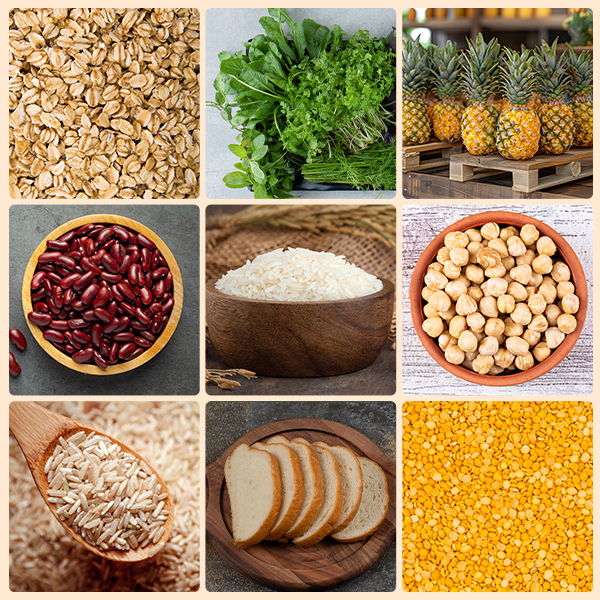The Health Benefits of Manganese In your Midlife
Blogs09 Jun 2025
IN THIS ARTICLE
Maintaining your health becomes a top priority as we enter midlife. This period calls for a deeper understanding, not only of our bodies but also of nutrition and which are the essential nutrients for healthy ageing. In this article, we’ll talk about one such important nutrient that is often overlooked: Manganese.
A trace mineral we need only in small amounts, manganese is known to offer several health benefits that range from reducing inflammation to promoting brain health. We’ll discuss these manganese benefits, its usage and more, so let’s get started!
What is Manganese & Why Do We Need It?
Manganese is a trace mineral naturally present in many foods and available as a dietary supplement. This mineral plays a role in numerous processes in the body, especially for healthy and strong bones, immunity, reproduction, energy production and so on.
Our bodies naturally contain 10-20mg of Manganese out of which 25% to 40% is present in the bones. Other organs like the pancreas, liver, kidney and brain also contain some amount of Manganese.
The Importance of Manganese in Midlife
Midlife is a period when the body undergoes various changes that can impact health. The manganese supplement benefits become particularly relevant during this stage. For instance, manganese's role in bone health can help manage and prevent osteoporosis, a common concern for many in their 40s to 60s.
Manganese also supports brain health, helping to maintain cognitive function and mood stability. This is especially important during midlife when the risk of cognitive decline increases. Its ability to provide antioxidant effects helps prevent chronic conditions and is also helpful as we age. All in all, the health benefits of manganese make it a vital nutrient for those seeking to navigate midlife with vitality and resilience.
How Much Manganese Do We Need?
Since manganese is a trace mineral, it’s not required in very high quantities. The recommended daily intake (RDI) of manganese for adults according to the NIN, Indian Council of Medical Research is 4mg per day. You can easily consume this amount of manganese by including the food sources mentioned above in your diet!
Sources of Manganese
Foods that are natural sources of Manganese include

- Hazelnuts
- Pecans
- Oats
- Brown rice
- Chickpeas
- Spinach
- Pineapple
- Soybeans
- Whole wheat bread
- Peanuts
- Lentils
- Kidney beans
Including a variety of these foods in your diet can help you achieve the recommended intake of manganese and reap its health benefits.
Health Benefits of Manganese
Now that you know a little bit about Manganese and its natural sources, let’s delve into the multiple health benefits of manganese:
1.Bone Health
Many minerals are important to boost bone health, among which one is Manganese. This micronutrient helps in the synthesis of cartilage and bone collagen along with bone mineralisation
2.Reduces inflammation
One of the main manganese benefits for the body is that manganese helps the body create an antioxidant called Superoxide Dismutase (SOD) which is a key factor in preventing cell damage caused by oxidative stress. This antioxidant helps fight inflammation and reduces joint inflammation as well. Since free radicals and oxidative stress lead to more chronic conditions, SOD and Manganese can help reduce the risk of these health problems as well.
3.Brain Function
Manganese is a mineral that can help your neurons send signals to each other in the brain. Studies have found that manganese can even help boost brain function. Having a deficiency in this micronutrient may increase the risk of mental illnesses, learning disabilities and seizures. Furthermore, the antioxidant effect of manganese can prevent oxidative stress and protect the brain cells from damage.
4.Metabolism and Energy Production
Manganese is a key player in metabolism and energy production. It helps create or activate enzymes that convert proteins and fats into energy, supporting overall metabolic health. This may be particularly important during midlife when metabolic rates can slow down, and energy levels fluctuate!
Conclusion
To conclude, manganese is a wonderful micronutrient that helps with a host of processes in the body. Overall, there are manganese benefits to make a note of and they include boosting bone health, metabolism, brain health and fighting inflammation, free radicals and chronic illnesses. You only need about 4mg of Manganese daily as an adult, so make sure you’re adding foods like nuts, seeds, and whole grains and getting your daily fill!
For more informational content on health, nutrition, and ageing, explore Right Shift. We are a community looking to motivate those in their midlife to pursue their health and take charge of their fitness. Our blogs cover these topics in detail and can help you expand your knowledge and ignite motivation. Additionally, we also have free tools that you can use to make a solid beginning in your healthy ageing journey. Our health score calculator can help you understand how your current health is, and our free meal plan creator can custom-make the perfect plan which aligns with your preferences and your health goals. So try them out and make the right shift today!
Other Popular Blogs
Magnesium-Rich Foods | Calcium Deficiency Symptoms | Iron Deficiency Symptoms and Reasons | Healthy Diet Plans | Nutritional Value of Spinach |
FAQs
The symptoms of a manganese deficiency have yet to be established clearly as it is a rare occurrence. However, it may be possible that a manganese deficiency can lead to bone demineralization and poor growth in children, skin rashes, altered mood, decrease in serum cholesterol, and increased premenstrual pain in women.
Yes, you might meet your manganese needs if you have a mix of them. Nuts and seeds like Hazelnuts, pecans, and peanuts are known to be good sources of this trace mineral.




